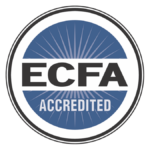
Serving the Homeless
In recent years, donors have urged nonprofits to collaborate to address community problems and needs, believing collaboration will result in the more efficient use of charitable dollars. Indeed, the nonprofit landscape in Gwinnett is fragmented and reductant to a large degree. For many nonprofits, referral arrangements have been mistaken for collaboration and limited mutual investing and risk-taking has taken place.
Today, however, two very different but complementary nonprofit organizations, HomeFirst Gwinnett and Good Samaritan Health Center of Gwinnett, have come together to address a complex problem in an innovative collaborative fashion.
Good Samaritan Health Center of Gwinnett has partnered with HomeFirst Gwinnett, a United Way of Greater Atlanta, Gwinnett County, and Primerica Foundation jointly funded initiative. HomeFirst Gwinnett is designed to function as an entry system to help the homeless of Gwinnett County gain assistance with housing placement and access needed services. Good Samaritan Health Center of Gwinnett will staff an assessment clinic to provide health screening services at HomeFirst’s Assessment Center.
A survey by Enterprise’s Health Begins with Home Initiative examined the impact of housing costs on healthcare. The survey found that renters who are severely cost-burdened (paying more than 50% of their gross monthly income to rent) will often delay regular medical visits and forego much-needed treatment plans. In Gwinnett County, an estimated 68,000 people are considered severely cost-burdened.
Important statistics that resulted from the survey:
- 84% prioritize paying rent before anything else, only 1% prioritized health care costs;
- 45% have not followed a treatment plan provided by a health care professional because they couldn’t afford it; and
- 31% delayed a routine check-up because they couldn’t afford it.To the extent that homeless people have been able to obtain needed health care services, they have relied on emergency rooms, clinics, hospitals, and other facilities that serve the poor. Indigent people (with or without a home) experience many obstacles in obtaining health care. For homeless people there are additional barriers. Homeless people are more susceptible to certain diseases, have greater difficulty getting health care, and are harder to treat than other people, all because they lack a home.The interdependence of housing and healthcare explains why Good Samaritan Health Center of Gwinnett and HomeFirst Gwinnett will work together to address the needs of Gwinnett’s homeless population. The Assessment Clinic will be one day a week initially and more days will be added as the Assessment Center serves more homeless people. The Assessment Clinic offers limited medical care, but those individuals needing more than a thorough health screening can obtain treatment at one of the Good Samaritan Health Center’s comprehensive medical and dental clinics.
This collaborative arrangement uniquely enables Good Samaritan Health Center to expand the reach of our ministry and permits North Gwinnett Cooperative to broaden its service offerings without having to hire medical staff. We are pleased with the result of our thinking outside the box and hope our model will inspire other complementary nonprofits to collaborate similarly so that Gwinnett’s nonprofit network truly works as effectively and efficiently as possible for the benefit of our neediest neighbors.



